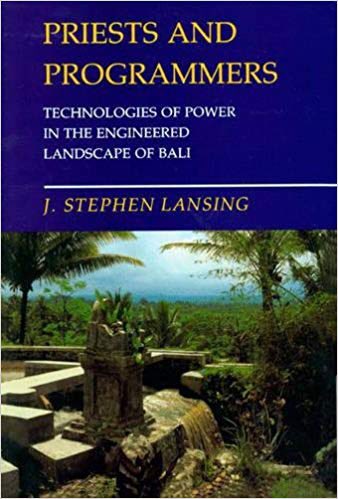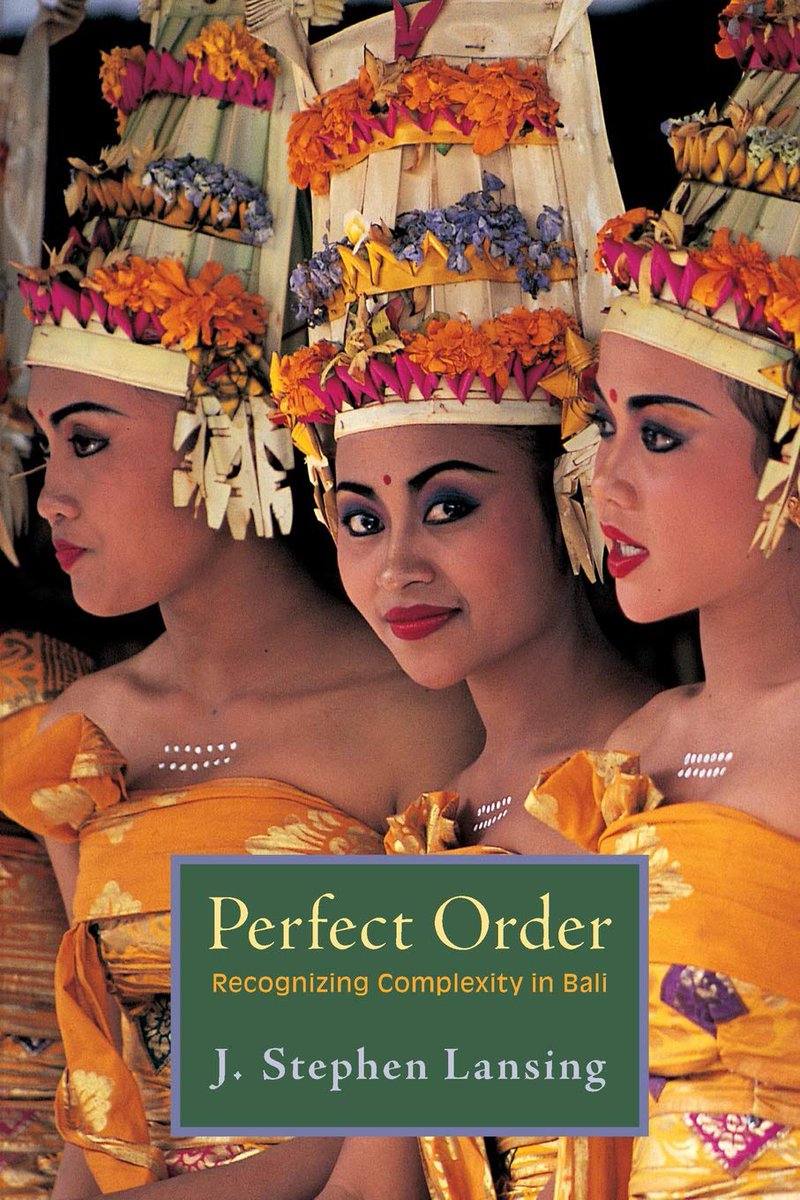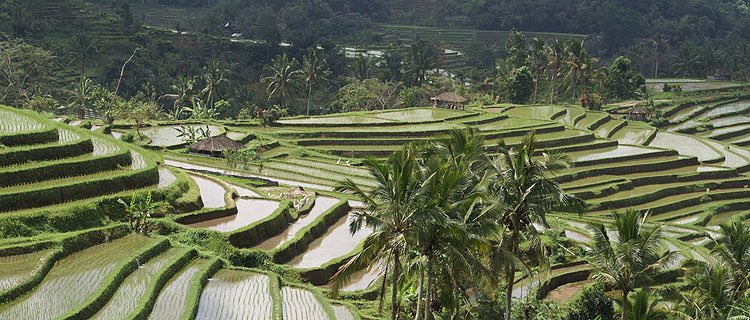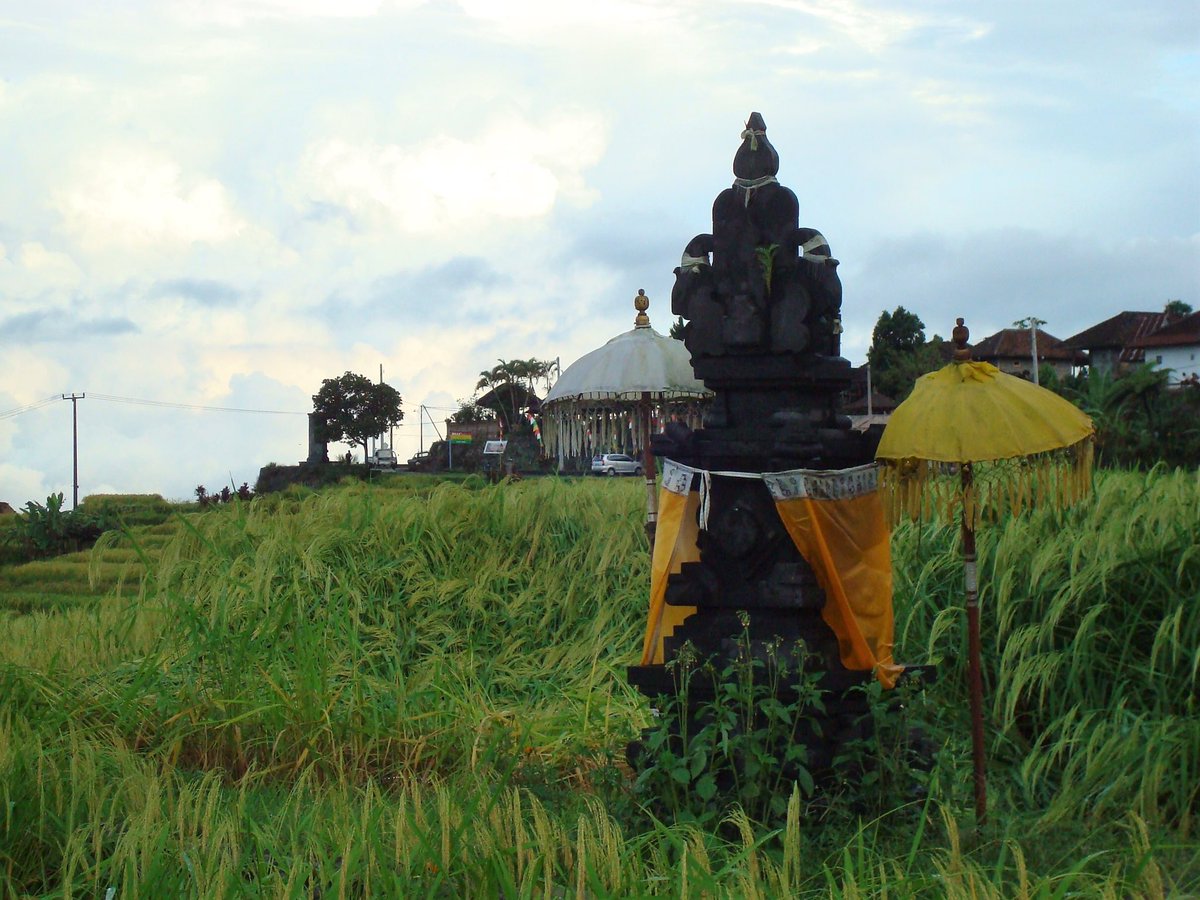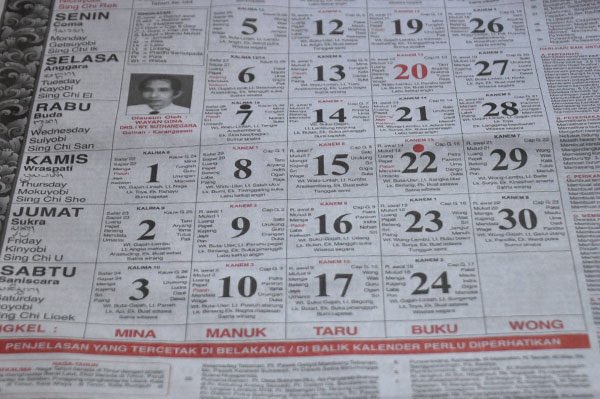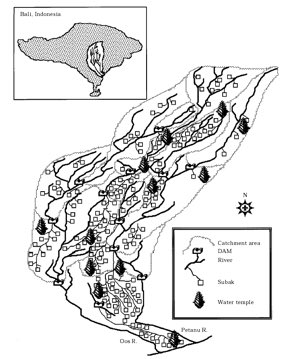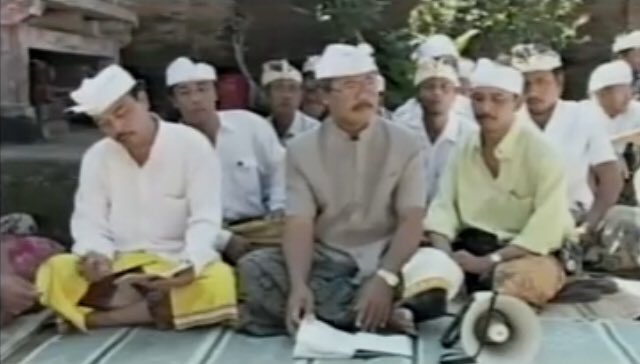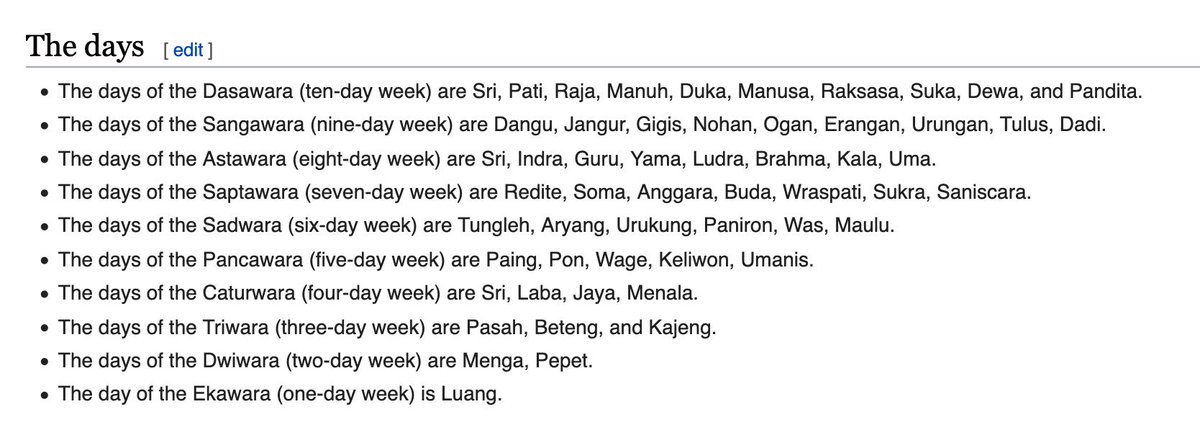I mostly talk about soil but that’s because it’s a measure &leverage point for fixing the entire system. I have many other interests which yes often trace back to soil.
been really enjoying following this account on medieval Indonesia. Which feels important. @siwaratrikalpa
been really enjoying following this account on medieval Indonesia. Which feels important. @siwaratrikalpa
I’ve long been interested in Indonesia and especially in the water temple system of Bali described well through the work of Steve Lansing. https://youtu.be/h9ozS8BKUFI ">https://youtu.be/h9ozS8BKU...
In this case I would say Lansing is a good point of reference because he has worked to advocate for these systems when western imposed green revolution strategies have ignored the water temples value as socio-ecological system coordinators.
But it’s still filtered through his interpretation and put into The language of complexity science. Which might actually be appropriate given the math does have its origin in India and Hindu society.
Much of cybernetics comes from American and British cultural exchange with Bali (see Mead and Bateson) image from https://www.researchgate.net/figure/Figura-4-Fotografia-de-Margaret-Mead-y-Gregory-Bateson-en-Bali_fig4_28321281">https://www.researchgate.net/figure/Fi...
these white anthropologists are students outside of cultural context who had limited time rather then “discoverers”; they necessarily get it wrong. still interesting in so much as we remember that &do wht Lansing did: defer to & respect cultural institutions as experts.
Ok with that said let me talk a little about what I get from Lansing and why i’m impressed with the temple system.
The Balinese water temples have clear unbroken cultural linkages to Hindu religious water management predating the 12th century. At least in ways interpretable by modern Balinese water managers. And that links back to before written records.
When the Green Revolution imposed western scientific farming ideas on Bali the view was that the temple management known as Subak was superstitious inefficient and in the way of progress. Their authority to manage was interrupted (Img from Wikipedia: Subak entry)
One thing ignored in this process was the extremely carefull timing for planting and irrigating local-adapted rice built into the extreme literacy of cycles reflected in their language music and calendar. Img:wikibali
After a period of extreme production Bali was hit with never before seen levels of pest outbreaks requiring repeated cycles of chemical intervention. http://www.islandsoforder.com/uploads/4/3/4/1/43417789/lansing_1993_amanthropol_v95_p97.pdf">https://www.islandsoforder.com/uploads/4...
Eventually the Indonesian government had to mass-sprey the entire island with pesticides (see video)
an example of a watershed in Bali the Subak sit at the main gates where water Channels were cut into the volcanic rock hundreds of years ago. Every month the farmers who draw from a temple meet in the courtyard in egalitarian cooperatives to coordinate water use. Img:Lansing
It’s extremely similar in design to Keyline design in Australia https://twitter.com/buildsoil/status/1072282045013909504?s=21">https://twitter.com/buildsoil...
Btw there are written references to tunnel building in 896 AD. They are still engineering them today. This allows access to the deep channels of volcanic nutrient dissolved water.
The Balinese language has caste embedded in it. You have to indicate caste and status when you talk. The Subak require a castless language and indications of status are fined. That and in other ways it maintains a space of democratization.
There is a lot to say about the pattern of cultural ritual celebration etc that coordinates from the monthly local meetings up to the annual festivities that coordinate the large scale management processes. I recommend some of Lansing’s lectures.
What was superstition to the green revolution folks is really how people coordinate increasingly complex systems: symbol, story, metaphor, collaboration, personification of processes, focus.
Lansing’s investigation of this 1000 year system was on the management priorities of farmers. Upland farmers cared most about pests and lowland cared even more about water shortages. dealing w each pest requires coordinating large enough areas to be on the same harvest schedule.
He showed that if those two factors: a water regime that allows the lower farmers to get water paired w a harvest pattern that reduces pests makes for an adaptive emergent system capable of optimizing production w pests in mind.
Which led to the case being made in a language of value to UNESCO to understand that it needed recognition as a world heritage site.
There is so much more to say. But to me Bali is a cultural so far more advanced than us because it’s developed an extremely advanced tech of cultural complexity that is a part of ecosystem processes. I hope we get there. https://www.shazam.com/track/121574902/subak">https://www.shazam.com/track/121...
https://youtu.be/wYxCn4a_i7k ">https://youtu.be/wYxCn4a_i...
A bigger so what is that we can learn a lot from the power of collaborating with neighbors and talking through things respectfully and celebrating larger forces together can repair our world.
But seriously watch the talk to the end. https://youtu.be/h9ozS8BKUFI ">https://youtu.be/h9ozS8BKU...
So that idea at the end. Try to do well in your yards. Get together monthly with your neighbors to talk about how things are going. Share food and music. Then annually have larger celebrations and sharing and learning. That will repair the world. Seriously.
He really gets into the idea that the inner management of anger is key to constant cooperation. That coordination with neighbors works but coordination randomly without regards to space fails. And “miracle rice produces miracle pests”
Also this is an extremely important update. https://youtu.be/4mi-4gNECYA ">https://youtu.be/4mi-4gNEC...
That anger comment gets into something Mead & Bateson saw that Balinese parents worked hard at strengthening their children’s ability to return to calm after emotional extremes: happy or sad or angry. That there is a cultural mandate for centeredness.
let me add one other interesting thing. I mentioned the calendar. It& #39;s pretty interesting- they have two calendars one is used for extremely specific measures of cycles.

 Read on Twitter
Read on Twitter
